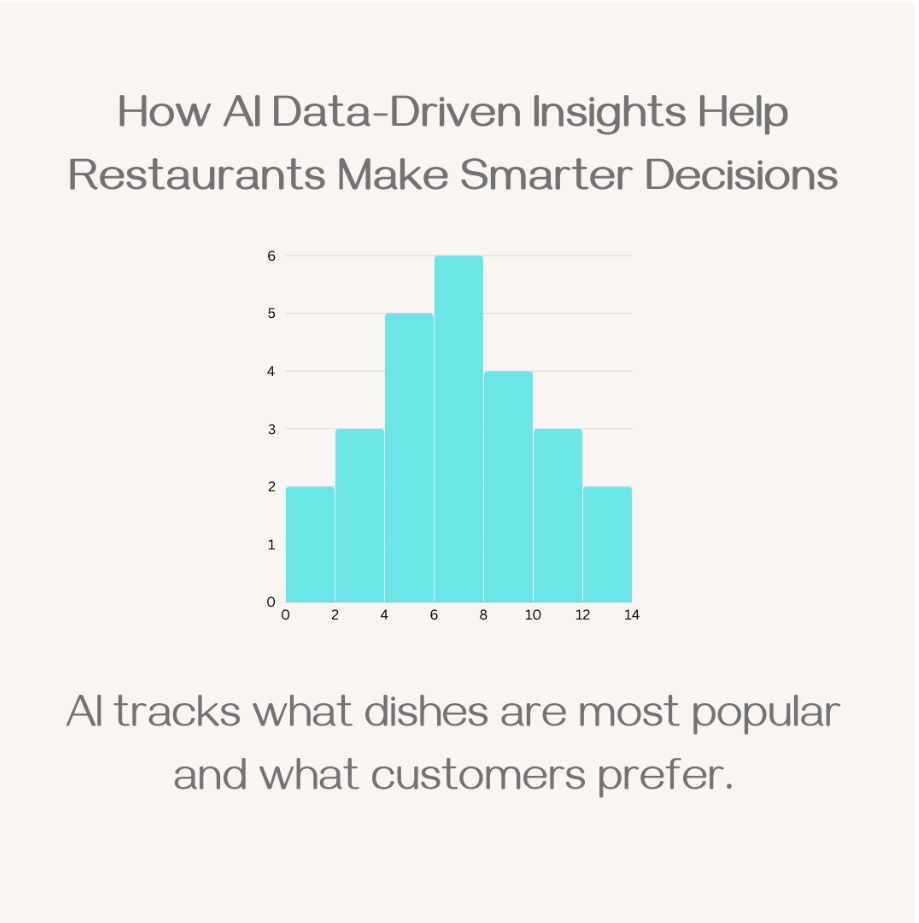Customer service has become one of the biggest drivers of business success in recent years, with customers expecting quicker and more personal responses. In 2024, AI-powered customer service is revolutionizing how businesses interact with their patrons. This article explains why AI customer service is critical to business success this year by examining its benefits and applications in the restaurant sector.
The Rise of AI in Customer Service
AI, or Artificial Intelligence, has evolved from a novel technology to an integral component of business processes. While the first deployments of AI were focused on data processing and automation, today’s AI solutions can understand and respond to human interactions with accuracy. This development has significantly changed customer service, where speed and personalization are now crucial.
Key Benefits of AI Customer Service
Operation at Low Cost
AI in customer service can deliver substantial cost savings. Automating regular queries and tasks means a business can greatly lessen the need for large teams of customer service agents.
In restaurants, this could mean fewer staff members handling phone calls and queries, allowing them to focus on more complex tasks and other aspects of customer service. The best phone systems for restaurants, integrated with AI, can handle a high volume of calls and interactions without requiring additional personnel, thus reducing operational costs.
Improved Customer Experience
AI-driven customer service, like chatbots and virtual assistants, changes the game. Such systems can respond instantly to customers at any time during the day and in the night. Where customer satisfaction depends a lot on rapid and efficient service, AI for restaurants handles routine inquiries about menu items, hours, and special deals that attract customers. Instant support keeps customers satisfied, which is crucial in this fast-paced industry.
AI-driven personalization enables businesses to tailor interactions to individual customer preferences. For example, AI in restaurants can highlight new vegetarian dishes or specials based on customer demand, making the offerings more relevant and engaging.
Personalised Interactions
This is the most linked aspect of today’s customer service, and in the field of personalization, AI is unparalleled. Using customer data, such as past interactions, purchase history, and browsing behavior, AI systems make personalized recommendations and responses. For restaurants, that could mean suggesting dishes for customers that they will most likely enjoy, based on previous demands or other indications regarding their food preferences. It not only enhances the level of enjoyment when dining but also helps in retaining a customer because people like being recognized and catered to according to preference.
Smoother High Volumes
Restaurant support staff can be overwhelmed to handle a large volume of queries from the customers during peak hours, like lunch or dinner. AI customer service solutions can handle simultaneous transactions, which means each of the customers will get quick attention. For example, the answering service for restaurants can take numerous reservation requests and inquiries at a time with no chance of holding queues, which will avoid losing opportunities.
With AI handling large volumes efficiently, it means the ability to scale operations without compromising on service quality. This is very important for multi-location restaurants or restaurants that are experiencing sudden growth.
Data-Driven Insights
Further, the AI systems generate meaningful data which could be critical in driving business decisions. With customer interactions and feedback, insights are made into customer preferences, trends, and developing patterns. To the restaurants, this means an idea of what dishes are in the highest demand, at what time, and generally, what customers would want.

This, in turn, places them in an advantageous position to make informed decisions regarding menu offerings, pricing strategies, and marketing campaigns. For instance, AI could indicate that plant-based dishes are gaining momentum. Such information could motivate the restaurant to introduce vegetarian menu options.
Applications of AI in the Restaurant Sector
AI-Powered Reservation Systems
The core of managing restaurant bookings lies with reservation systems. AI-driven reservation systems can automatically handle all bookings, cancellations, and real-time information about table availability. This liberates administrative tasks from the staff and assures reservations are well-handled.
By analyzing historical reservation trends, AI can predict peak times and suggest optimal booking slots. In return, restaurants have been able to understand more realistically how their seating is to be arranged to minimize wait times.
Chatbots for Customer Queries
Chatbots are one of the versatile applications of AI that can deal with a wide array of customer queries. In restaurants, they would aid customers in knowing about the availability of items on the menu, their dietary options, special promotions available, modifications that could be made, and even provide real-time updates.
By managing routine queries, helpdesk software features such as chatbots allow staff to focus on more complex inquiries and enhance the dining experience with personalization. AI Chatbots can resolve common issues and speed up the response time.
Voice Assistants and AI Integration
AI-integrated voice assistants can be used to improve the customer service of restaurants. These voice assistants can respond to voice queries, assist with reservations, and provide information about menu items. For multi-location restaurants, integrating AI into phone answering services ensures smooth and consistent communication across all sites.
The voice assistants can also handle customer feedback and complaints, trigger instant responses, and forward these to human employees if the situation so demands.
Predictive Analytics for Customer Preference
As a result, predictive analytics will turn into an impactful tool in foretelling customer trends and preferences. AI systems can analyze historical data regarding the most desired dishes during peak dining times and emerging patterns of customer preferences. This helps restaurants with effective inventory, promotion planning, and adjusting their menus by demand.
For example, AI may feel that demand for gluten-free dishes will increase, and, therefore, a restaurant would need to incorporate newer dishes that are gluten-free within its menu to retain and attract customers.
Challenges and Considerations
This notwithstanding, AI customer service is not without its challenges. It would, therefore, be very instrumental to ensure that AI systems are rightly trained and maintained so that the responses given are appropriate and relevant. Businesses must balance automation with human touch, especially in areas requiring empathy and deep understanding.
Other important concerns are those of data privacy and security. As AI systems handle sensitive customer information, businesses must implement strict security measures to protect data and comply with privacy laws.
Conclusion
Artificial Intelligence customer support is a crucial driver of business success in 2024. This will enhance the customer experience, making the experience far more personalized and productive in handling high volumes. Some of these applications are intelligent reservation systems, chatbots, and voice assistants, among many others. Such things will make smooth running of the restaurant with good customer satisfaction.
Adopting AI enables restaurants to proactively meet the evolving needs and expectations of today’s consumers. Benefits of adopting technology in restaurants include operational efficiency, cost savings, and enhanced customer experiences, all of which contribute to long-term success in today’s competitive market.
FAQs
How would AI customer service enhance restaurant customers’ experiences?
Artificial intelligence customer service enhances restaurant experiences through the speed and accuracy of responses to common questions, making the interaction personalized to customer preferences. Indeed, it contributes to quicker service and a more tailored experience, boosting customer satisfaction and loyalty.
What are some of the benefits of integrating Artificial Intelligence into a restaurant’s telephone system?
Integrating AI into the restaurant’s phone system will handle high call volumes, manage reservations, and provide real-time updates efficiently. This will minimize the need for extra staff while maintaining timely and consistent communication with the customer.
Can AI handle complex customer interaction within restaurants?
AI effectively handles routine queries and tasks, but it escalates complex issues to human staff when necessary. In this way, customers get support that is appropriate for more nuanced or sensitive situations, with AI efficiency for standard interactions.






